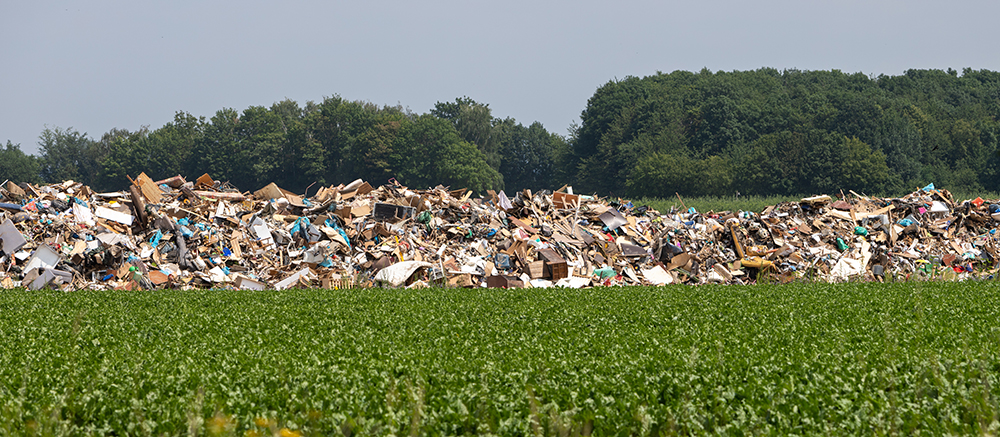Waste: The critical legacy of flooding
The Covid pandemic, the summer deluges in some European countries and rapidly-growing urbanisation around the world all point to the widening scope of sectors that need to be classified as critical infrastructure (CI). The growing importance of waste management is pushing society to consider it to be as vital as other CI sectors such as energy, and transportation. Indeed, experience has shown that this sector is critical, especially in the case of a health crisis, along with natural hazards or human-induced disasters. Lina Kolesnikova investigates

Post-flood waste can be toxic and difficult to dispose of (image: Adobe Stock)
Germany, a pioneer in waste segregation and recycling, has been confronted with a post-flood waste crisis after the catastrophic floods of this summer. The amount of trash is so huge that the main priority has been to get rid of the waste before it poses a risk to human health rather than recycling and reusing it as called for by EU guidelines. The same picture is in seen Belgium, where only a tiny part of the garbage is sent to recycling facilities. Unfortunately, the bulk has ended up in landfill or incinerators without any segregation. The waste is not only soaked or mixed with sludge, but is also contaminated with faeces or chemicals. So rats and more viruses could become a real problem.
Meanwhile, the capacities of local incinerators are not enough to cope with the total amount of waste and the process may take years, creating a real threat to ecological situation in affected areas. The German BDE (Federal Association of the German Waste Management, Water and Raw Materials Management) estimated that the floods created hundreds of thousands of tons of bulky waste. In Belgium the floods generated about 1.5 million tons of waste, which is the equivalent of three-quarters of the average annual volume of waste generated by households in Wallonia (the French-speaking region of Belgium).
This waste also includes bulky items such as vehicles and refrigerators. Substances leaking from such items, especially chemicals, lead to the threat of water pollution. Furthermore, in some areas water treatment plants had to be shut down because of the flooding. There is, therefore a direct short-term risk to water consumers in the region and a long-term risk to the environment.
As during the beginning of the Covid-19 events, the development of the ‘garbage disaster’ in Germany and Belgium means we once again see that our systems are not ready for crisis situations and only work properly in normal times.
Here, we come to the issues of capacity management and availability. Capacity management refers to the act of ensuring a business maximises its potential activities and production output at all times, under all conditions. Availability management is focused on delivering a sustained level of availability to meet service requirements. Therefore, capacity management provides the means for achieving sustained availability to meet service requirements.
Both are highly used during the risk assessment and crisis planning in CI programmes. Meanwhile, the health (sanitation) and waste crisis show that some areas, which are critical for society, have been neglected and considered to be less important.
I hope that lessons from previous events have not only been identified but learnt as well and that waste management will be considered as critical infrastructure by decision-makers and that sufficient attention will be paid to these areas in the future.